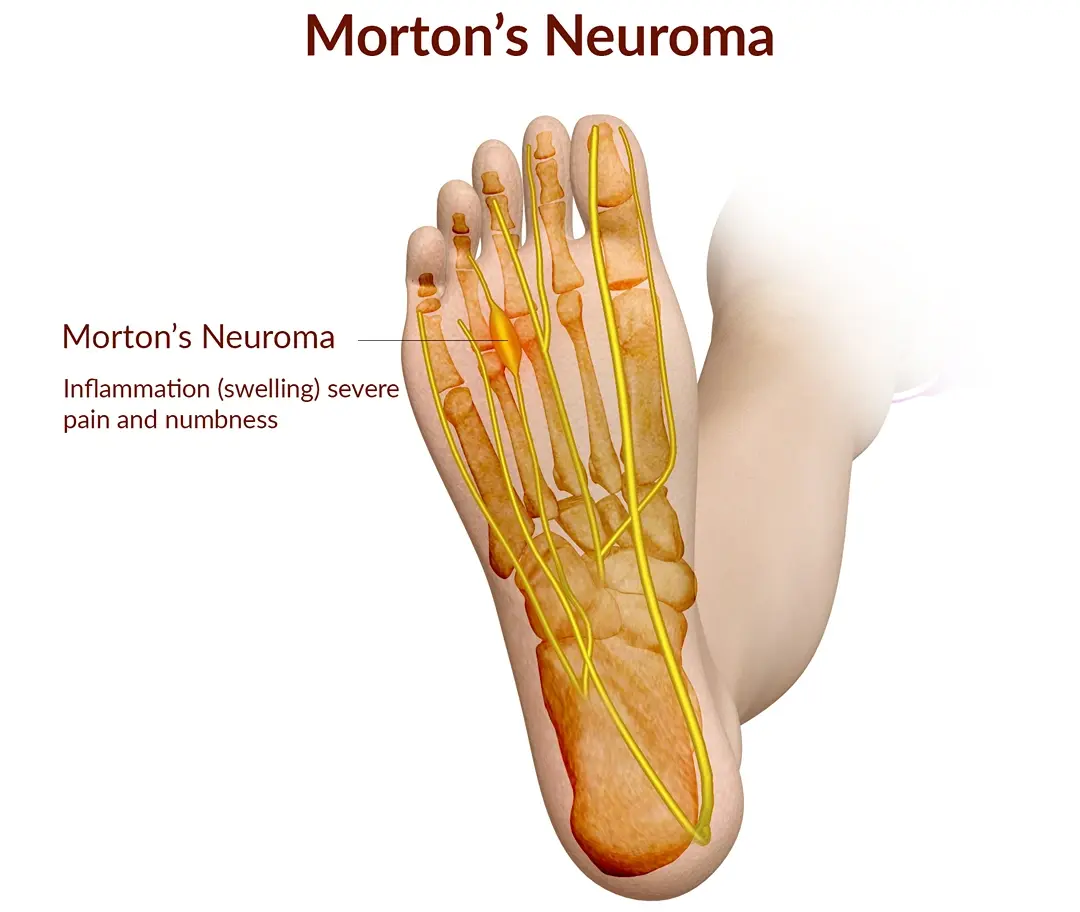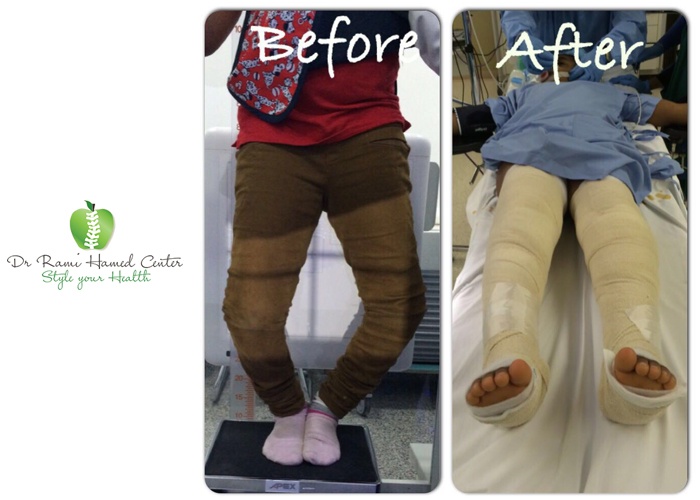Non-Invasive Treatment of Morton's Neuroma at Foot and Ankle Clinic DRHC Dubai
Morton's Neuroma, also known as intermetatarsal neuroma, is a painful condition affecting the ball of the foot, typically between the third and fourth toes. This condition involves the thickening of tissue around one of the nerves leading to the toes, causing pain, swelling, and discomfort. Understanding its causes, symptoms, and available treatments can help manage this condition effectively. At DRHC Dubai, we offer various non-invasive treatment options to manage and alleviate the symptoms of Morton's Neuroma.
Causes of Morton's Neuroma
- Footwear
- High Heels: Wearing high-heeled shoes can place excessive pressure on the ball of the foot, leading to nerve irritation.
- Tight or Narrow Shoes: Shoes that compress the toes can cause nerve compression and irritation.
- Improper Fit: Shoes that do not fit properly can lead to abnormal pressure distribution on the foot.
- Foot Structure
- Flat Feet: People with flat feet may experience increased pressure on the nerves in the foot.
- High Arches: High arches can lead to uneven pressure distribution, contributing to nerve irritation.
- Bunions and Hammertoes: These foot deformities can cause abnormal pressure on the nerves.
- Repetitive Stress
- Sports and Activities: High-impact sports and activities that involve running, jumping, or repetitive stress on the feet can contribute to the development of Morton's Neuroma.
- Occupational Hazards: Jobs that require prolonged standing or walking on hard surfaces can increase the risk.
- Trauma or Injury
- Foot Injuries: Trauma or injury to the foot can lead to inflammation and irritation of the nerves.
- Recurrent Stress Injuries: Repeated stress or micro-traumas to the foot can cause nerve thickening and irritation.
- Medical Conditions
- Arthritis: Inflammatory conditions like arthritis can cause swelling and irritation of the nerves in the foot.
- Diabetes: Diabetic neuropathy can contribute to nerve problems and increase the risk of Morton's Neuroma.
- Biomechanical Abnormalities
- Abnormal Gait: Walking patterns that put excessive pressure on the ball of the foot can lead to nerve irritation.
- Poor Foot Mechanics: Imbalances or misalignments in the foot can contribute to the development of Morton's Neuroma.
Symptoms of Morton's Neuroma
- Sharp, Burning Pain: Persistent pain in the ball of the foot that may radiate to the toes.
- Numbness or Tingling: A sensation of numbness or tingling in the toes.
- Feeling of a Lump: A feeling as if there is a lump or something inside the ball of the foot.
- Increased Pain with Activity: Pain that worsens with walking, standing, or wearing tight shoes.
Non-Invasive Treatment Options
- Footwear Modifications
- Proper Footwear: Wear shoes with a wide toe box to reduce pressure on the affected area.
- Avoiding High Heels: High heels can exacerbate symptoms by placing additional stress on the forefoot.
- Cushioned Shoes: Opt for well-cushioned shoes to absorb shock and reduce pressure.
- Orthotics and Padding
- Custom Orthotics: Custom-made shoe inserts can help redistribute pressure and provide support to the foot.
- Metatarsal Pads: Placing metatarsal pads in the shoe to relieve pressure on the affected nerve.
- Activity Modification
- Rest: Limiting activities that exacerbate symptoms, such as prolonged standing or high-impact sports.
- Ice Therapy: Applying ice to the affected area to reduce inflammation and pain.
- Medications
- Non-steroidal Anti-Inflammatory Drugs (NSAIDs): Medications such as ibuprofen or naproxen can help reduce pain and inflammation.
- Pain Relievers: Over-the-counter pain relievers can provide temporary relief from discomfort.
- Physical Therapy
- Stretching Exercises: Exercises to stretch and strengthen the muscles of the foot.
- Massage Therapy: Techniques to relieve tension and improve circulation in the affected area.
- Injections
- Corticosteroid Injections: Administered by a healthcare professional, these injections can reduce inflammation and provide pain relief.
- Alcohol Sclerosing Injections: Injections that can help reduce the size of the neuroma by causing nerve degeneration.
- Shockwave Therapy
Prevention Tips
- Footwear Choices: Wear comfortable, well-fitting shoes with adequate support.
- Avoid High-Impact Activities: Minimize activities that place excessive pressure on the forefoot.
- Foot Care: Regularly check and care for your feet, especially if you have diabetes or other conditions that affect foot health.
Conclusion
At DRHC Dubai, our experienced specialists are committed to providing comprehensive care for patients with Morton's Neuroma. Through a combination of non-invasive treatments and personalized care plans, we aim to relieve your pain and improve your quality of life. If you are experiencing symptoms of Morton's Neuroma, contact us today to schedule a consultation and explore your treatment options.
.png?width=281&height=59&name=bookanappointment%20(1).png)
Orthopedic Dubai / Foot and Ankle Clinic / Orthopedic Specialist in Dubai - Are you looking for the best orthopedic doctor in Dubai? DRHC provides the best orthopedic surgeon for the Foot and ankles in DRHC Dubai. Call +97142798200 Now and Book Your Appointment.




.png?width=281&height=59&name=bookanappointment%20(1).png)






